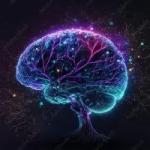 (This is the second installment of a series of articles examining the spiritual and intellectual influences of the 1982 classic science fiction film, “Blade Runner.” Readers may wish to read the first installment, “Like Tears In Rain: The Intellectual and Spiritual Influence of Blade Runner—Part 1”—also available here at the SNS website– to put the article below into proper context)
(This is the second installment of a series of articles examining the spiritual and intellectual influences of the 1982 classic science fiction film, “Blade Runner.” Readers may wish to read the first installment, “Like Tears In Rain: The Intellectual and Spiritual Influence of Blade Runner—Part 1”—also available here at the SNS website– to put the article below into proper context)
October’s article in this series introduced the reader to the world of “Blade Runner,” and this month we will continue that discussion with an examination of the importance of memory in our lives and how the film tackles this issue.
Memory. That biochemical rolodex of feelings and images from our past experiences has enormous influence over who we are at this moment. Without our memories, who would we be? What would we have learned from the triumphs and challenges of our past if not for the impressions our memories have had on us? These emotion-laden snapshots remain with us and guide us through our present experiences, helping temper our responses as we draw on the well of wisdom those memories have produced. Think, then, what it would be like to be born (activated?) fully grown with an enhanced intellectual capacity, yet with no idea who you were or where you came from. What questions would be coursing through your mind if the only memories you possessed were those recorded in the hours since your “birth?” Such is the plight of the replicant from “Blade Runner.” That is, at least, until the Tyrell Corporation figured out a way to “gift” their creations with a full set of memories; they come into existence with a couple of decades worth of life experiences already stored in their minds. So, if the replicants did not live the experiences to create the memories, how did they get in there? Below is an excerpt from “Blade Runner,” in which Rick Deckard and Dr. Eldon Tyrell discuss Rachel, a Nexus-6 series replicant whom Deckard has just tested to see if she is human or not.
The test, known as the Voight-Kampff test, consists of asking the participant a series of questions designed to induce an emotional response. Deckard is indeed able to conclude that Rachel is a replicant, but it takes a considerably longer time than it usually does:
Deckard: She’s a replicant, isn’t she?
Tyrell: I’m impressed. How many questions does it usually take to spot them?
Deckard: I don’t get it Tyrell.
Tyrell: How many questions?
Deckard: Twenty, thirty, cross-referenced.
Tyrell: It took more than a hundred for Rachel, didn’t it?
Deckard: She doesn’t know?!
Tyrell: She’s beginning to suspect, I think.
Deckard: Suspect? How can it not know what it is?
Tyrell: Commerce is our goal here at Tyrell. More human than human is our Motto. Rachel is an experiment, nothing more. We began to recognize in them strange obsessions. After all they are emotionally inexperienced with only a few years in which to store up the experiences which you and I take for granted. If we gift them with a past we create a cushion for their emotions and consequently we can control them better.
Deckard: Memories. You’re talking about memories. (Script excerpt from Trussel.com)
Rachel is the first replicant to carry a lifetime of memories in her mind. She believes that she was born, had a past, and as far as she is concerned, is human. In truth, the memories in her mind are not her own. Tyrell had the childhood memories of his own niece implanted in Rachel’s brain to, as he phrases it, “cushion” her emotions. Without those memories, Rachel would run the risk of being emotionally unstable as other replicants have turned out to be. It is Deckard himself who later tells Rachel the truth:
Rachel: You think I’m a replicant, don’t you?
Deckard: Hah.
Rachel: Look, it’s me with my mother.
Deckard: Yeah. Remember when you were six? You and your brother snuck into an empty building through a basement window. You were gonna play doctor. He showed you his, but when it got to be your turn you chickened and ran. Remember that? You ever tell anybody that? Your mother, Tyrell, anybody, huh? You remember the spider that lived in a bush outside your window? Orange body, green legs. Watched her build a web all summer. Then one day there was a big egg in it. The egg hatched—
Rachel: The egg hatched…
Deckard: And?
Rachel: And a hundred baby spiders came out. And they ate her.
Deckard: Implants! Those aren’t your memories. They’re somebody else’s. They’re Tyrell’s niece’s. (Script excerpt from Trussel.com).
Just imagine that—being told by a stranger that your memories are not actually your own, and that stranger knows them as well as you do. The realization that she may well not be the human she believed herself to be is beginning to sink in. There we see the value that memory can have; for Rachel, it had defined her very existence. It is no less valuable for the rest of us. The film creatively reminds us of how important and precious our memories are, and how they are a fundamental essence of our humanity.
When I was in the eighth grade, my grandmother had a stroke which put her in a long term care facility, where she would remain for the last six years of her life. We would go to visit her, but she was unable to recognize any of us, even my own father—her son. All of us were, in her mind, friends from her own childhood. She never remembered us again. I loved her no less then, but the real her–the woman whose country home I would visit as a child, whose gooseberries I would pick in her back yard, whose laughter made everyone in the room smile—that woman was gone. I often wonder if she was in there somewhere, perhaps aware of us on some level as she slowly faded away. I like to think so.
Today, I see my mother-in-law and my own parents, all age 86, struggling to recall details from recent events. I have had to answer the same questions, sometimes three to four times, in the same phone conversation. It is a frustrating situation; to know that the people you know and love are slipping away, and there is nothing you can do to hang on to who they once were. I can only imagine how they themselves feel. We have so many years of shared memories together, my parents and I. In time, it is possible they will no longer possess the memories we currently share, and I alone will be the keeper of them—until I lose them too, like tears in rain.
Then there are those who lose their memories altogether, slowly descending into an existence that makes even remembering the most common, everyday tasks a trial. They are still physically alive, but the essence of who they are—their memories, bonds, connections—fade until only a shadow or echo of their former selves remains.
Rachel possesses the memories of Tyrell’s niece, but comes to understand that those memories are not really her own. Her situation may be worse than dementia; she can build and retain new memories, but will forever be haunted by the images from a past that never really happened to her. She was never shaped by her experiences as we are, and must accept that her past existence, if not a lie, is someone else’s truth. Losing the only tangible link she had to her supposed “humanity,” the Nexus-6 replicant who now knows herself for what she really is forms a connection with Deckard, who is drawn to her as well. Perhaps if past memories are denied her, she can turn to another fundamental human characteristic to fill the void and bring meaning to her existence: love. This love she learns to feel for Deckard will have enormous repercussions in the “Blade Runner” universe, and will serve as the subject for the third and final installment of this series.
This holiday season, work to forge some new and special memories with those that you love. Capture tender moments in pictures, and mount those pictures on your wall so that you are constantly reminded of the experiences that, over time, contributed to your ongoing human adventure. Treasure the memories of years and decades gone by, and reflect on their lessons, both good and bad, for they define who you have become and are a part of you while you retain them. May those memories you forge this year be the kind any replicant would envy!
(In February, a final installment of the “Blade Runner” series will examine “Blade Runner: 2049,” the recently released sequel to the original, focusing on the power of love and its role in the quest to be fully human.)











